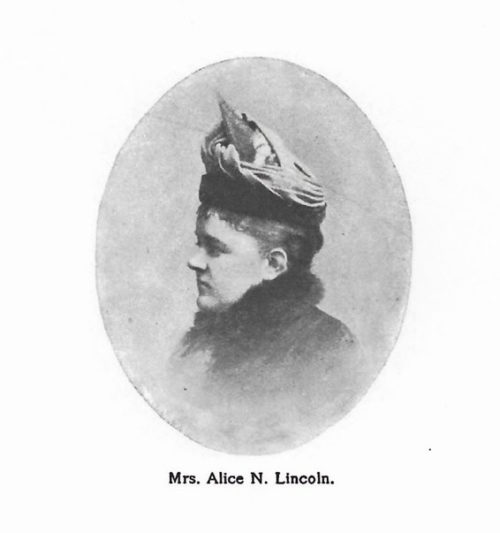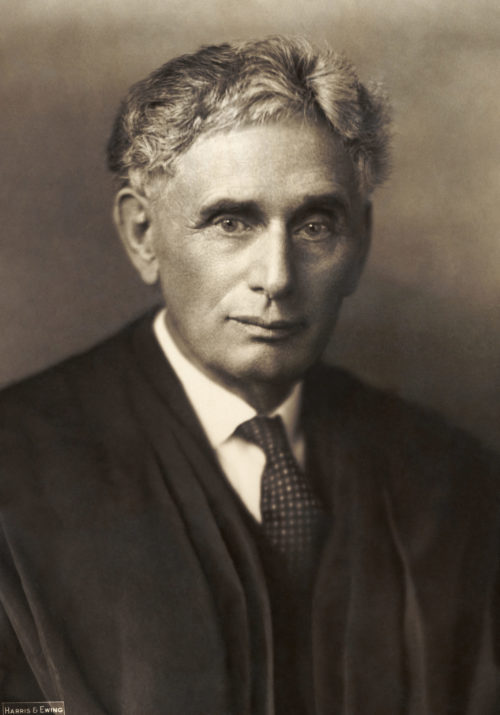The Rocking Chair Fight of 1893
Dr. Thomas Jenks, one of Boston’s leading figures in medicine, business, and politics during the late-eighteenth century, lived in the West End for most of his life. In 1893, when Jenks chaired the Board of Public Institutions, his refusal to accept a donation of rocking chairs to the Rainsford Island hospital put him at odds with Alice Lincoln, an advocate for the poor in Boston, and Martin Lomasney, the political boss of the West End.
Thomas Leighton Jenks, born in Conway, New Hampshire on June 10, 1829, grew up attending public school in Dover, New Hampshire and working on a farm at a young age. As a teenager, Jenks moved to Lowell, Massachusetts to live with his sister, and started working at a pharmacy. His experience with pharmaceutical work continued when he moved to Boston, and when he served for two years in the Navy as a hospital steward during the United States’ war with Mexico in 1846.
After Jenks graduated from Harvard Medical College in 1854, he ran a pharmacy in the West End. But more importantly, he served in many positions of authority in medicine, government, and business. Jenks was at various points one of Boston City Hospital’s trustees (for five years) and the director of East Boston Ferries (for six years). He also served in the Massachusetts House of Representatives in 1870 and 1876, and was appointed chair of the Board of Police Commissioners between 1882 and 1885. In a March 7, 1885 edition of The Boston Globe, “Thomas L. Jenks, Chairman” signed each of the five announcements by the Board of Police Commissioners notifying the public of business owners who applied for liquor licenses. In 1892, American Druggist announced in its section on news in Massachusetts that Dr. Jenks, “a former West End druggist,” was reappointed to Boston’s Board of Public Institutions as its chair (he was first appointed in 1889). At that time, he held “many positions of trust” particularly as president of the North End Savings Bank. The Boston Globe reported that Jenks by 1893 was “reputed to be wealthy and has many business matters that engross his time.”
But Jenks resigned from the Board of Public Institutions in April 1893 after a controversy known as the “rocking chair question” or “rocking chair fight.” The incident started after Alice Lincoln, a philanthropist who managed a North End tenement in order to provide decent, affordable housing to immigrants, raised money to buy sixty wooden rocking chairs for the poor women receiving care at the Rainsford Island hospital. Rainsford Island is one of the Boston Harbor Islands previously known as “Hospital Island.” After Lincoln visited the hospital with her husband, she discovered that there were not enough chairs, let alone comfortable ones, for patients. When Lincoln spoke to Dr. Jenks about donating the chairs she raised money for, he told her that the Board of Public Institutions could not accept the chairs and that she would need the City Council’s permission. Eventually the rocking chairs made their way to the hospital, but Jenks’s original refusal to accept them made him a target of strong criticism at the City Council. Alderman Martin Lomasney, then the “political boss” of the West End, was Jenks’s harshest critic during deliberations on a resolution to thank Alice Lincoln for her donation. According to the Globe, Lomasney “denounced the conduct of the doctor while in the city government, and said he could readily see why a man of his character could not appreciate a good and charitable act like that in question.” The paper continued that “Lomasney said he believed that Dr. Jenks had tried to bulldoze this woman, and that he had his emissaries at work.” The resolution passed with near unanimity, with the only “nay” vote from Alderman Thomas Flood of South Boston who “classed Mrs. Lincoln among the fanatics.” Dr. Jenks resigned soon after the City Council meeting; he did not admit that his resignation had to do with the rocking chair incident, but to the Globe it was likely.
Clashes between Alice Lincoln and Dr. Jenks continued in 1894 when Jenks became Rainsford Island’s physician superintendent. Lincoln testified to Boston City Council in 1894 on the horrible conditions for poor women at the hospital; her attorney was Louis Brandeis, a future Supreme Court Justice. Dr. Jenks reportedly said to the city councillors, “Have you any more damned old women cranks to bring before me? If you have, you can trot them in now.” After 53 days of hearings with witness testimony, Lincoln’s activism culminated in the successful closure of Rainsford Island hospital and the transfer of its patients to other institutions.
Dr. Jenks died of a heart attack on October 31, 1899. He apparently lived in the West End his entire adult life, and in the early 1900s he was “still well remembered” as “a leading spirit” who once lived in the neighborhood. This was noted in the Globe’s piece on West End millionaire William K. Porter’s recollections of “some of Boston’s noted citizens who once lived in the West End.” Although Jenks never wrote a will, when he died his two executors, including his wife, carried out his known wish for a public library to be built in Conway, New Hampshire. With Jenks’s gift and donations from New Hampshire locals, the Conway Public Library was built in 1900 at a cost of $45,000.
Article by Adam Tomasi
Source: Newspapers.com (“Board of Police Commissioners,” Boston Globe, March 7, 1885); ProQuest (“Angry Aldermen,” Boston Globe, April 25, 1893, page 2; “Why Dr. Jenks Resigned,” Boston Globe, April 26, 1893, page 5; “Dr. Jenks Resigns,” Boston Globe, April 25, 1893, page 8; “Half Century in the West End,” Boston Globe, May 20, 1906, page 26;); American Druggist, Volume 21; The West End Museum (for more on Martin Lomasney); “Who Was Alice Lincoln?” (Mount Auburn Cemetery); “Thomas L. Jenks Biography” (Conway Public Library); King, Moses, 1853-1909, “The North Grove Street Building,” OnView: Digital Collections & Exhibits, accessed May 7, 2021, https://collections.countway.harvard.edu/onview/items/show/6602.; Mount Auburn Cemetary; Brandeis University










